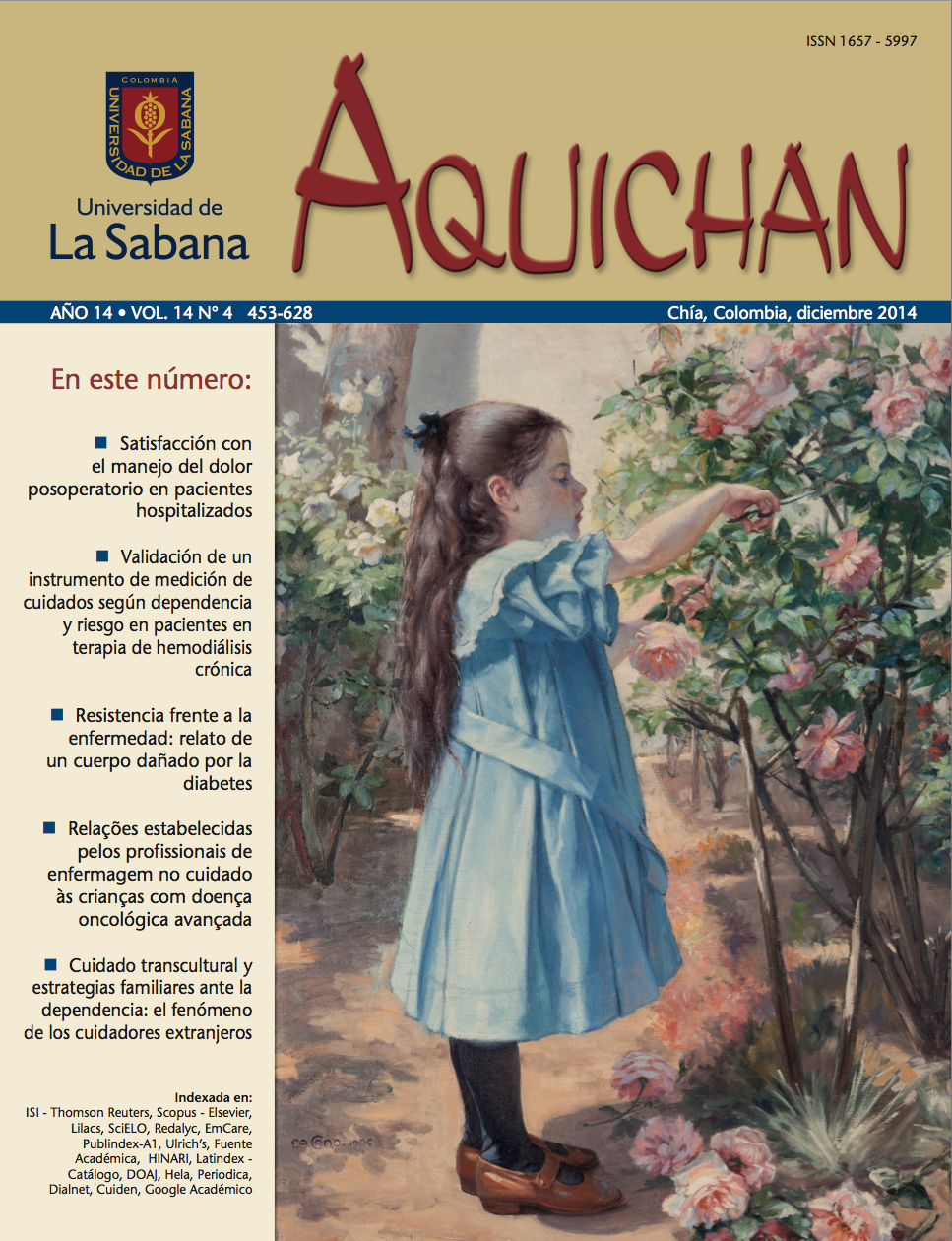A Study of Nonconformities in Nursing Work: Evidence Relevant to Improving Hospital Quality
Keywords:
Hospital nursing service, quality management, health care quality, accreditation, hospitals. (Sources, MeSH, Bireme).Abstract
Objective: The purpose of this study was to identify the nonconformities related to nursing work at hospitals in Minas Gerais (Brazil). Method: A quantitative, descriptive method was used. The data were collected from organizational diagnosis reports prepared by the Brazilian Accreditation System for 37 of the 45 hospitals evaluated in 2009 (sample of 82.22%). The nonconformities related to nursing work were classified into three groups: care/assistance, management/supervision, and education/research. Results: The results of this study show there is a gap between the provisions of the Brazilian Accreditation System and nursing practice. They revealed important issues that should be corrected in the interest of patient safety, hospital organization, and compliance with current legislation in Brazil. However, it was noted the nonconformities related to nursing work are intrinsically connected to the work of other health professionals. Conclusions: Resolving the nonconformities that were identified does not depend exclusively on the nursing team. A change in the hospital culture and the development of an organizational policy on the part of hospital managers are required to ensure the multi-professional team has opportunities to encourage continuous improvement in the quality and safety of the everyday, routine operation of hospitals.Downloads
Download data is not yet available.
Published
2015-01-16
How to Cite
Ribeiro, H. C. T. C., Campos, L. I., Manzo, B. F., Brito, M. J. M., & Alves, M. (2015). A Study of Nonconformities in Nursing Work: Evidence Relevant to Improving Hospital Quality. Aquichan, 14(4). Retrieved from https://aquichan.unisabana.edu.co/index.php/aquichan/article/view/2934
Issue
Section
Articles
License
1. Proposed Policy for Journals That Offer Open Access
Authors who publish with this journal agree to the following terms:
- The journal and its papers are published with the Creative Commons License Attribution-NonCommercial-NoDerivatives 4.0 International (CC BY-NC-ND 4.0). You are free to share copy and redistribute the material in any medium or format if you: give appropriate credit, provide a link to the license, and indicate if changes were made; don’t use our material for commercial purposes; don’t remix, transform, or build upon the material.





